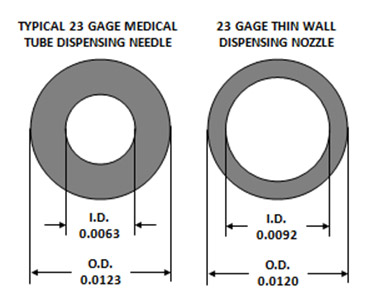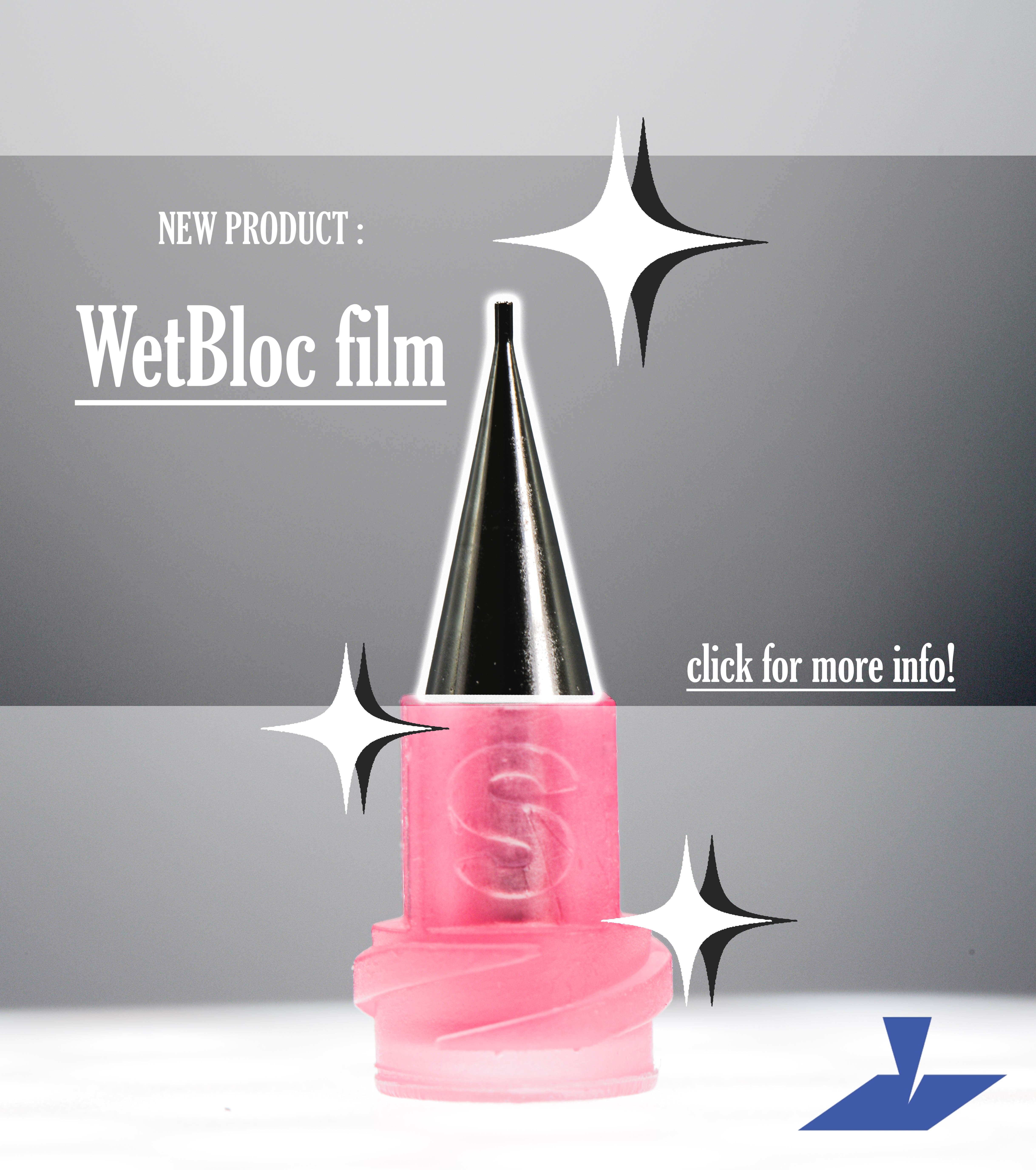Subrex nozzle geometry is carefully selected to achieve maximum pressure reduction at a selected flow rate while minimizing the volume of fluid retained ahead of the luer taper. The conical shape is rigid, which results in a high propensity to resist bending in contrast to conventional medical needles made from straight tubular cross sections. Transitions between cross sectional changes can have an adverse or beneficial influence on pressure and flow rate. To be of benefit, they are kept gradual and generous.
Pressure is reduced by approximately three times at equivalent flow rate, or flow rate is increased by three times at equivalent pressure
Subrex thin wall nozzles are connected to the fluid delivery system through a permanently attached molded color-coded polypropylene hub with twin helix acme threads that provide full luer thread compatibility. This hub, which can be made separable or attached permanently to the thin wall nozzle core, serves to lock the nozzle core to a luer taper to prevent separation from the taper under pressure resulting from transmission of liquid.
 Our available Reusable Hubs are separable, thus lowering disposable core cost and reducing waste, as only the wetted core is disposed, retaining the hub for reuse. This hub type is currently manufactured by machining from stainless steel or tellurium copper. A very short straight section, approximately one millimeter, 0.039 inch culminates in an exit aperture that provides the best detail for access into confined areas.
Our available Reusable Hubs are separable, thus lowering disposable core cost and reducing waste, as only the wetted core is disposed, retaining the hub for reuse. This hub type is currently manufactured by machining from stainless steel or tellurium copper. A very short straight section, approximately one millimeter, 0.039 inch culminates in an exit aperture that provides the best detail for access into confined areas.
Standard medical gage tubing size is based on outside diameter of the needle. However, Subrex nozzles designed specifically for robotic dispensing of fluids have a considerably thinner wall, enabling a significantly larger inside diameter for a given gage size to be produced. Forming of metal allows exit apertures as small as 0.002 inch or 50 microns with thin rigid walls of about 0.002 inch, 0.05 millimeter or less, a cost efficient reality for promulgation of the technology in the industry.

